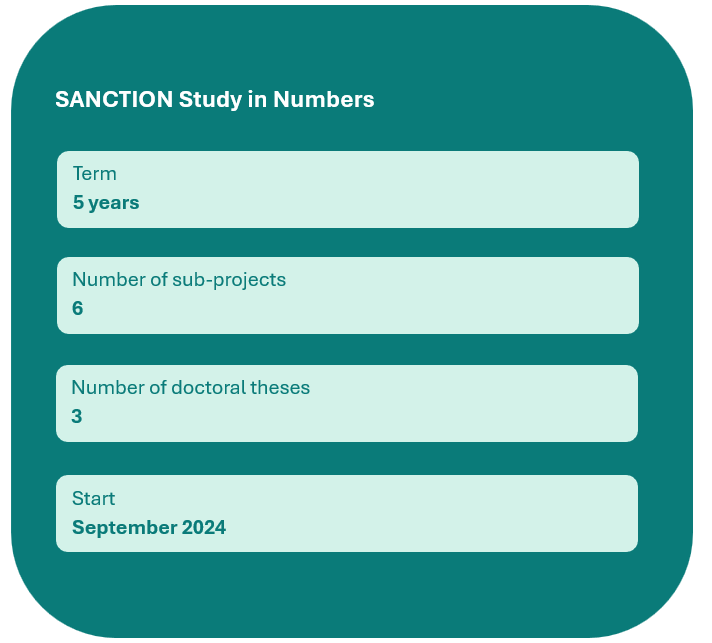Sanctions
About the SANCTION Study
Every year, tens of thousands of people in the Netherlands are subject to community service orders, suspended sentences, probation supervision, or diversion measures (such as the Halt intervention). Yet we know remarkably little about how these community-based sanctions and measures are decided upon and implemented, and what their long-term impact is.
The SANCTION (Systematic ANalysis of Community based sanctions and interventions: Trajectories of Individuals and their Outcomes in the Netherlands) study is a large-scale longitudinal research program into community-based sanctions in the Netherlands. For the first time, a cohort of youth and adults who have been sentenced to a community service order, a suspended sentence with supervision, or the Halt intervention are followed over a period of time. Parents of youth who undergo a community service order – or Halt-intervention are also involved in the study.
This unique approach allows us not only to study the current experiences and perceptions of the group, but also to investigate the long-term consequences in crucial areas of life such as well-being, health, social integration, work, and financial situation.
The program combines questionnaires, administrative data and in-depth interviews to answer fundamental questions about how these sanctions are decided, implemented and what their actual impact is – knowledge that has been largely lacking until now.
Unique Collaboration
The research is being conducted by a consortium consisting of the NSCR and the WODC. The consortium works closely with six partners: the Ministry of Justice and Security, the three probation organizations, the Child Protection Board, and the Halt Foundation.
The Sanction Study in Short
 |
Unique longitudinal cohort study – For the first time, we are following a cohort of youth and adults who have been given a community-based sanction or measure over time. |
 |
Unique partnership – Collaboration between NSCR, WODC, Ministry of Justice and Security, the three probation organizations, the Child Protection Service, and Stichting Halt. |
 |
Mixed-method approach – Combination of questionnaires, administrative data, and in-depth interviews to provide a complete picture. |
 |
Three key questions – Research into decision-making (who receives which sentence(s) or measure(s), and why?), implementation (how are sanctions enforced and experienced?) and consequences (what is the impact on recidivism, work, health, and social integration?) |
 |
Directly relevant to practice – New insights support professionals in their daily work and contribute to a more effective criminal justice system. |

Discover the SANCTIONs research program
On the project website, currently only available in Dutch, you will find:
- Description of the research, including subprojects
- Information about partners and committees involved
- Opportunities for collaboration and participation
- Current research results and publications
- Contact details of the research team
Fellows
Experts on this theme
Sanctions: Recent news




